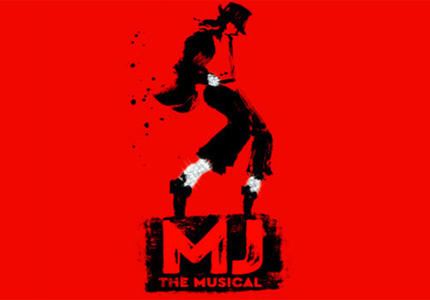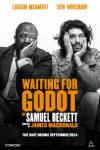The Role of Theatre Critics
There has been much discussion in recent theatre press over the changing role of the theatre critic. With the internet and blogs becoming so readily available to anyone regardless of who they are or where they work there is current thought that the role of the theatre reviewer is fading, and may become obsolete in the very near future. The role of the reviewer has changed ever since the explosion of the internet, as rather than opinion being held by an ‘elite’ few, literally anyone can publish their thoughts and make them available for the world to see.
One of the biggest questions this poses is actually one that has quite a clear division between the West End and our Broadway counterparts. The role of Broadway theatre critics has traditionally been much stronger than their British contemporaries, with their verdict having a much stronger say on the survival or longevity of a show. British audiences have been rejecting the views of critics for years, the most famous example being the opening of Les Miserables at the Barbican Theatre in 1985, which was described by The Observer as “a witless and synthetic entertainment”. The now famous story of lines outside the theatre to buy tickets even after a critical mauling shows the British public’s resilience to making up their own mind about a show.

Two nations divided by a common language
The art of reviewing theatre continues to change year on year. Whilst star ratings were not always the norm, they are now seen as the most important part of a review, with Producers wanting the visual impact to add to their marketing channels and audiences wanting an instant sign as to whether a show is good enough for them to part with their hard earned cash. Many publications, such as The Stage, still do not include star reviews. This makes the job of the critic somewhat harder, it is left to just their writing to slam or sell the production. In many cases it is not the reviewer themselves who adds the stars, but rather an editor who looks after a particular section. Whilst this method is primarily designed to keep consistency within the publication, it obviously can end up with some discrepancies between the review itself and its star rating.
Reviewers are also fighting against cash-strapped editors, who are increasingly pushed for space and forced to cut down the word count of reviews. The highly generalised assumption that the average person no longer wants to read extended pieces of writing, and only has time in their horrendously busy lives to read a small section of a page is one that is sadly restricting the nature of reviews, leaving writers scrambling to be as succinct as possible in order to hold attention and get their point across. On Broadway however the opposite can certainly be said. Take for example Matilda the Musical which received a string of rave reviews on both sides of the pond. The highly revered reviewer Ben Brantley from the New York Times gave a gushing review of the show after it opened at the Schubert Theatre earlier this year. His review touches on all aspects of the production and main cast, clocking in at over 1,200 words. Compare this to the review which ran in London’s Evening Standard newspaper at only 356 words, there is obviously a significant difference. Whilst both reviews gave the highest level of praise to the musical, Henry Hitchings had to put across its strengths in a mere fraction of the space. Surely a show that is described as “one of the best new British musicals in years” should be allowed more space to breathe in London’s most read newspaper?
Does this obvious difference in length bear any correlation to the fact that British audiences simply don’t care as much about the thoughts of these so called theatre professionals than their American cousins? The might of Brantley in particular is an unparalleled comparison, and no British critic holds that particular level of weight, despite a couple of the more socially active ones thinking they do. Although many do not like to admit it, the New York Times review is one of the most important reviews a production can receive. Even if not considered so by the artistic and creative teams, the marketing and PR officers keep their fingers crossed and pray to the theatre Gods in the sky that it will not be negative – let alone positive.

“It’s a Hit!” but where are the crowds?
Two recent cases in point can be used for this discussion, with both having striking similarities and differences. The first is the Menier Chocolate Factory’s glorious West End transfer of Sondheim’s 1981 ‘flop’ musical Merrily We Roll Along. After playing at the intimate South London venue last year, the production quickly sold out after a string of rave reviews and excellent word of mouth. Without a doubt this was the best musical production I saw throughout 2012, and one I have personally returned to numerous times. Despite originally being a flop, running for 16 performances on Broadway, the show has developed a somewhat cult following, and with Sondheim shows now appealing more to the masses (thanks in part to some fantastic recent revivals of Sweeney Todd and Into the Woods), all eyes were on this production to succeed in the mid-sized Harold Pinter Theatre. With any transfer there is always the risk that the show loses something along the way, but critics were practically unanimous that Maria Friedman’s tight, clear and honest production stepped up to the plate proving the West End with a classy, solid revival.
This production broke records, proudly advertising itself as having received the most 5 star reviews of any other West End musical. Surely this accolade would translate beyond the ‘theatrical world’ and into the minds of regular audiences and tourists looking for a night out? Sadly despite the highest level of critical praise to be bestowed upon a musical, the show is having a hard time attracting audiences, with papered houses nightly and various discounts available, including top price tickets for only £15. Being a limited run, we can hope the show survives for the full booking period, and recoups its costs in someway. If there is any justice in the world the show, creative team and cast will all be remembered at next year’s Olivier Awards ceremony. The question still needs to be asked then, why the critical praise seems to have had no effect to the ‘average’ theatre goer? Sondheim is admittedly a hurdle for some people, and his witty wordplay is bound to isolate the tourist and group markets who tend to opt for the more visual offerings of shows like We Will Rock You and Mamma Mia! (both of which incidentally received extremely poor notices and again went on to defy the critics). Similarly the Harold Pinter Theatre is set to play host to yet another ‘5 star’ sensation, as Chimerica transfers from the Almedia Theatre later this summer. After a string of similarly glowing reviews, will this new play that runs for over 3 hours with an unknown cast meet a similar fate despite the critical weight behind it?

Another similar story comes direct from Broadway, where it received an impressive set of notices as well as the highly coveted Tony Award for Best New Musical at the televised 2012 ceremony. Once opened at the Phoenix Theatre in April this year, somewhat overshadowed by the overwhelming The Book of Mormon, who had won the same Tony Award the previous year. Whilst the show is certainly not close to closing, it took a while for word of mouth to help the show pick up. Flash sales and discounts were running on the show before it even opened, and whilst it has been extended until into 2014 this is no indication that it is realistically projecting that far ahead. Reviews were once again positive, and the originality of the piece within the current market is certainly commendable. Being overshadowed by the influx of American transfers and over-the-top marketing did nothing but highlight the shortcomings in Once‘s own marketing campaign, with people publicly attacking their official Twitter account about their lack of engagement with their own fans.
On Broadway Once can be said to be still riding the Tony wave, which is another key difference between the two locations. Take for example the winners of this year’s top theatre prizes on both Broadway and the West End: Kinky Boots, winner of Best Musical at the 2013 Tony Awards is currently playing to 100.8% capacity houses, and is commanding up to $349 for a ticket, whilst the 2013 Olivier Award winner for Best Musical Top Hat is currently discounting top-price tickets to under £30 and has posted its closing notice for later this year. The Tony Award is seen as a stamp of approval for American audiences, and although it doesn’t guarantee the eternal success of a musical, it certainly gives those which are searching for an audience such as In the Heights (2008) and Memphis (2010) a much needed boost.

The Price is Right
Countless examples can be made from both the past and present where London audiences have gone against mass critical opinion, and obviously there are also times where everything seems somewhat balanced. The question then has to be asked, if the role of the theatre critic in England does not correlate primarily with the needs of an audience, then who exactly are they writing for? An interesting debate occurred recently surrounding this exact topic, and who different critics feel they are talking to. As a reviewer for a primarily sales based website, I consider my reviews to advise the public or whoever wishes to read them about which shows are worth their time, and more importantly their money. Obviously art is subjective, and I never expect my own opinions to be that of others, nor do I believe I am an authority on what people should wish to see. I choose to highlight the positives, flag up the negatives and give an overall impression of the show, to give the reader an honest judgement of whether it is right for them. I would never advise someone to not see a show, as I respect people go to the theatre for a hundred different reasons. I am always of the opinion that a good review should spark discussion, and should allow them to make up their own mind as to whether it is something they wish to see.
The debate can be extended further to question whether critics should be told the price of their seat. With any other system of review, be it for a product on Amazon or a hotel on TripAdvisor, the reviewer writes knowing the monetary value attached to the product. Whilst this should never be a deciding factor when writing a review, I am of the opinion that it certainly should be considered, when forming a judgement as to the ‘worth’ of a product, even in the artistic sense. As someone who goes to the theatre for free (for work) and at my own expense (for pleasure), I often think of the different mindset this puts you into when watching a show. Imagine paying £250 to take your family of 4 to see Charlie and the Chocolate Factory of a Saturday afternoon. After paying such a significant amount of money for a trip out, are you more or less likely to criticize and nit-pick specifics about the production and focus on the negatives? Had the experience been free, would you have the same mental (and financial) commitment to the experience, and you don’t feel bad about highlighting the errors? It’s the same with critics. Whilst their job is to see a vast amount of theatre in a short space of time, they are constantly comparing to other shows around, putting them in the ideal place to be able to recommend one show over another, and assess a show’s merits within the current theatrical context. Surely them knowing and referencing the cost of tickets, and factoring this into the equation as a form of ‘value for money’ would help the British public take them more seriously.
Looking ahead at the next wave of big musicals to open it will be interesting to see if their reviews follow suit. Some initially good marketing from The Commitments (opening at the Palace, 8 October) surrounded their half-price preview prices, but since then the buzz has subsided significantly. Tim Rice’s new musical From Here to Eternity (Shaftesbury, 23 October) is pulling out the stops on the photo marketing front, but many are already expecting it to fail, as it feels a little too close to the disaster that was Gone With the Wind, and not just because it shares a leading man. Andrew Lloyd Webber’s new offering Stephen Ward the Musical (Adlwych, 19 December) is bound to be met with disdain by critics who love to pick holes with his work, and let’s face it his most recent work has been a well publicised critical disaster. Whether or not the critics will have the final say on these new shows is obviously unknown, but with the power of blogging, Twitter and the internet at large, it seems as though audiences will not be swayed by their judgement.









